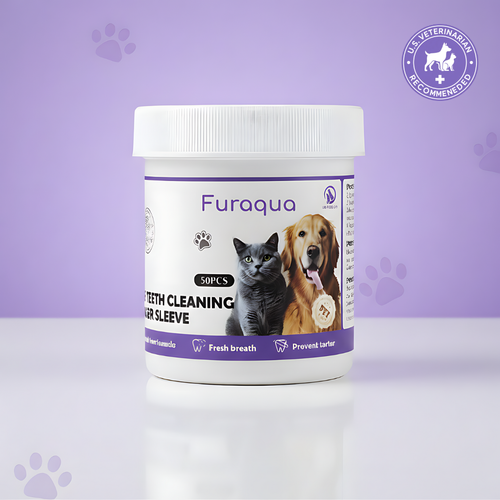How to Keep Your Dog's Breath Smelling Fresh Every Day

Why Your Dog's Breath Smells Bad

Natural Ingredients for Fresh Dog Breath
Product not found
Daily Tips for Keeping Your Dog's Teeth Clean

The Easiest Way to Fresh Breath? Furaqua Dental Spray

Frequently Asked Questions
Q: How quickly can I expect results from daily dental care?
With consistent use of dental spray or enzymatic products, most pet parents notice fresher breath within 3–5 days.
Visible improvements in gum health typically appear within 2–3 weeks. However, reversing existing tartar buildup
requires professional cleaning.
Q: Are natural ingredients really as effective as chemical products?
Yes! Natural enzymes, coconut oil, and botanical extracts have been shown to combat oral bacteria. Many veterinarians
prefer natural enzymatic products because they work with your dog’s natural oral chemistry rather than disrupting it
with harsh chemicals.
Q: My dog absolutely refuses tooth brushing. What should I do?
Don’t force it. Dental spray is designed for dogs that won’t tolerate brushing—delivering bacteria-fighting benefits
in seconds with minimal resistance. Combine spray with dental chews and toys for comprehensive care without the struggle.
Q: Can I use human mouthwash on my dog?
Absolutely not. Human mouthwash can contain alcohol, xylitol, and other ingredients toxic to dogs. Always use products
specifically formulated for pets.
Q: How much does professional dental cleaning cost?
Professional cleanings typically range from $500–$1,200 depending on location and severity. With extractions, costs can
reach $1,200–$2,000+. Advanced disease may cost $2,000–$5,000+. In comparison, daily prevention with spray runs about
$0.50–$1.00 per day ($180–$365 per year).
Q: Will dental chews alone keep my dog’s breath fresh?
No. While helpful, chews don’t reach the gumline where bacteria build up. They should supplement—not replace—daily plaque
removal via spray, brushing, or wipes.
Q: Is bad breath ever normal in dogs?
Mild “dog breath” after eating can be common, but persistent foul odor is not normal. It often indicates bacterial
overgrowth from poor oral hygiene or an underlying health issue. Fresh breath is achievable and should be the goal.
Q: Can I add lemon to my dog’s water for fresh breath?
A few drops of lemon juice can act as a mild deodorizer, but it’s not as effective as enzymatic products. Some dogs
dislike the taste and may drink less. Use sparingly and ensure your dog still drinks adequate water.
Conclusion
Title

